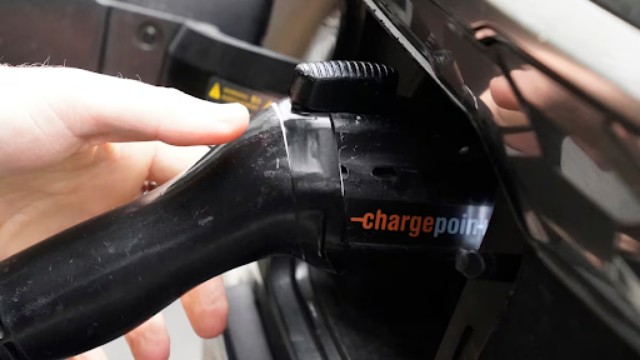
As major carmakers cut back on building new electric vehicle factories, concerns are growing over what lies ahead for the auto industry. Adrian Ghobrial has more on the story.
Canada’s electric vehicle (EV) industry has hit a troubling patch, leaving many in the sector uneasy about what’s ahead. Recent developments have sparked concerns that the momentum built over the past few years might be stalling — or worse, reversing.
At the center of the concern is Honda’s decision to pause its $15-billion investment in Ontario. The plan was to build several EV battery plants and create a Canadian-made supply chain. The reported two-year delay has raised doubts about the future of other major EV projects in the country, including those by Stellantis and Volkswagen.
Professor Gal Raz from the Ivey Business School says there are real worries in the air. He points to U.S. tariffs as a major factor shaking confidence in Canada’s EV prospects. Raz also notes that 2025 hasn't started strong for EV sales. One reason? Fewer incentives. The federal rebate program has ended, Quebec and British Columbia have cut theirs, and Ontario hasn’t offered any consumer rebate since 2018. All this is making EVs a tougher sell.
The new federal Minister of Industry, Mélanie Joly, faced tough questions on her first day in office following the cabinet shuffle. Responding quickly, Joly said she has already spoken to the heads of GM, Ford, and Stellantis, aiming to get clarity on their plans by week’s end.
Following Honda’s announcement, she assured the public that no jobs would be lost. In a written statement, she emphasized that employees would keep their current roles and benefits, and Honda remained committed to Canada’s EV industry.
Despite Honda's delay, some positive developments remain. Stellantis and LG Energy Solution are moving forward with the NextStar Energy battery plant in Windsor, Ontario — the country’s first major EV battery production facility. According to company representatives, the plant is still expected to begin production by the end of the year.
Meanwhile, Volkswagen and its battery division PowerCo are set to build North America’s first EV battery cell gigafactory in St. Thomas, Ontario. The project aims to start production in 2027, with plans to scale up based on demand. However, the batteries produced there will mostly be shipped to U.S. plants in South Carolina and Tennessee.
Even with these investments, there’s growing unease due to shifting trade policies south of the border. With U.S. presidential politics heating up, some believe companies like Volkswagen might pause and wait to see how things unfold. “Will the board ask themselves if they should delay too?” Raz wonders aloud. “Maybe they wait until the U.S. election dust settles.”
Experts following the industry say Canada needs to act fast. Canada's EV sector could lose its competitive edge without strong and steady government support, both financially and through policy. To meet the country’s 2035 zero-emission vehicle goal, many believe federal and provincial governments must roll out creative new incentives for buyers — and soon.















